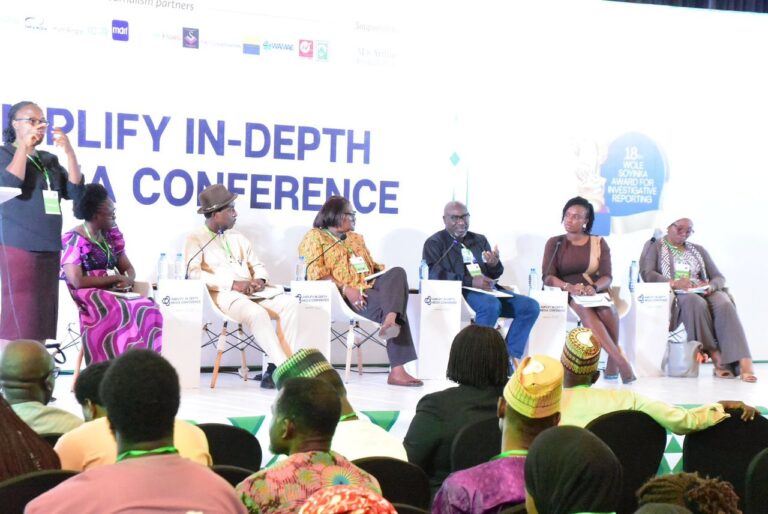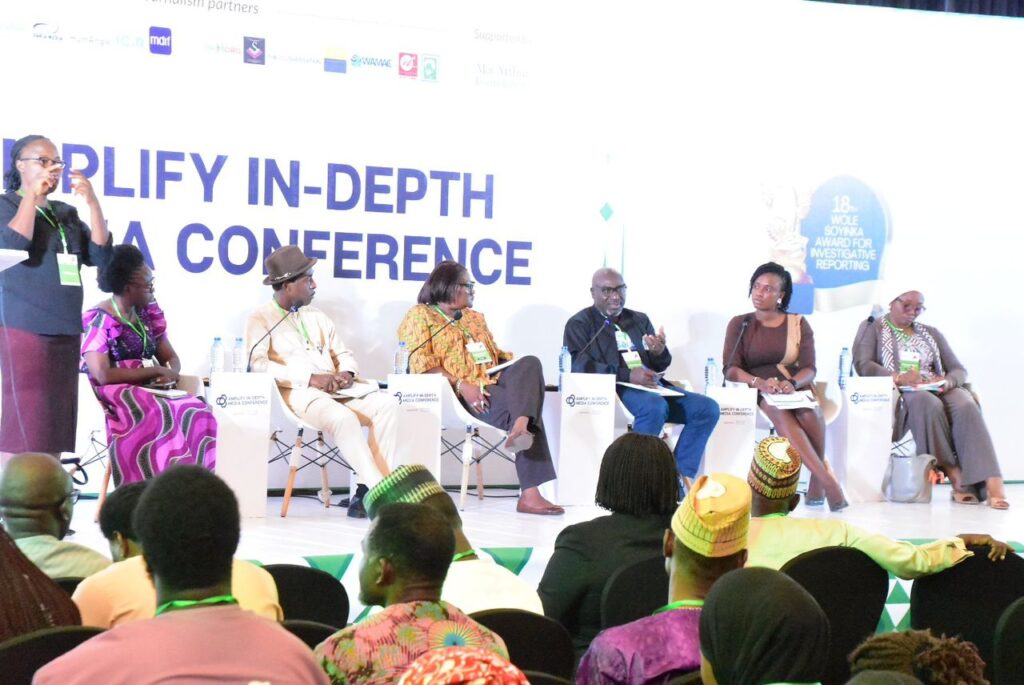Media stakeholders have called for re-evaluation of media regulations in Nigeria in response to rapid technological developments and innovation, as well as to enhance media sustainability and independence in the digital age. They stressed that this will ensure a more balanced and supportive environment for media organizations and practice in Nigeria.
The call was made at the third Amplify In-Depth Media (AIM) Conference organized by the Wole Soyinka Centre for Investigative Journalism (WSCIJ), in collaboration with the 18 members of the Media and Journalism (MAJ) cohort. The event which took place at the Abuja Continental Hotel on December 8 and 9, addressed issues related to media policies, technology innovation, sustainability, and independence in the digital age.
The two-day conference featured presentations, panel discussions, and workshops led by notable experts in the media industry. It also had in attendance participants and delegates from diverse media organisations across the country.
Mr. Dapo Olorunyomi, Publisher of Premium Times and Founder/CEO of the Centre for Journalism Innovation & Development (CJID) in his keynote address titled “The independent media equation: Policies, ownership, technology, and sustainability,” highlighted critical factors shaping independent media. Addressing the challenges posed by information disorder and the rise of artificial intelligence (AI), Mr. Olorunyomi stressed the need for regulation in the AI space, with journalists taking the lead and acquiring adequate education on AI.
He said: “AI will bring lots of benefits as it can help solve problems of health challenges but AI needs to be regulated and journalists must take the lead and if they must take the lead they must be well educated about AI.”
Mr. Olorunyomi also spoke on the need for accuracy and truthfulness in journalism practice. He asserted that journalism is not merely a profession but a practice, emphasizing the importance of truth, accuracy, and verification in reporting.
According to him, journalism must be an enterprise rooted in truth-telling and accuracy. He underscored the significance of verification, stating that any claim made in journalism must be verifiable.
In a panel discussion on the keynote address, Mr. Deji Adekunle, Programme Director of Media Development Investment Fund (MDIF)/Nigeria Media Innovation Program (NAMIP), emphasized the need for clearer accountability in media practices, pointing out the nuanced nature of media regulation, particularly in the journalistic context, as a challenge in accessing accountability.
While acknowledging existing regulations in various aspects of the media, Mr. Adekunle stressed the importance of honest conversations to prevent external influences from determining the mode of media engagement. He pointed out that there is a need for improving regulations, particularly in areas related to human rights and freedom of expression.
He said: “Every aspect of the media is regulated, however media regulation in the journalistic context is a little more nuance. We have to have honest conversations so that the powers that be will not determine the media’s mode of engagement. There is need to improve on the regulations that exist especially on human right and freedom of expression.”
Another concern raised by Mr. Adekunle was the impact of legal challenges on press freedom within the policy framework, noting that lawsuits could destabilize and distract media organizations, hindering their ability to function effectively.
Speaking on media regulations, Mr. Adekunle advised the media community to focus on existing regulations rather than anticipating new ones. He advocated for a policy framework centered around press freedom to ensure a conducive environment for accountable journalism.
He said: “There is need to improve on the regulations that exist especially on human rights and freedom of expression. We don’t have to focus on regulations that will come; we should look at regulations that exist. The policy framework should be about press freedom.”
Mr. Lanre Arogundade, Executive Director, International Press Centre (IPC), in his submission, shed light on the current state of media regulation in Nigeria, pointing out the delicate balance between accountability and press freedom.
He underscored the foundational principles of media regulation, asserting that the media serves as a public trust and, as such, must be primarily accountable to society, and not necessarily the government.
Mr. Arogundade said that the media in Nigeria has demonstrated a commitment to responsibility. However, he voiced concerns over the infringement on press freedom through excessive powers granted to regulatory bodies.
He urged media regulatory bodies to expand their focus beyond oversight to also consider the financial sustainability of media organizations for fostering a healthy and independent media landscape.
Addressing current regulatory practices, Mr. Arogundade called for a reevaluation of existing regulatory frameworks to ensure a more balanced and supportive environment for media organizations in Nigeria.







